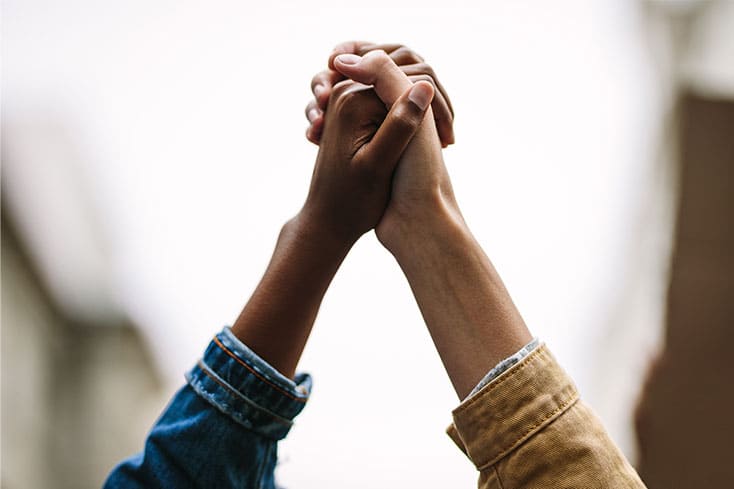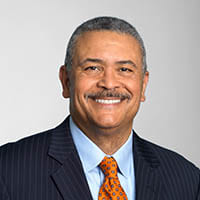July 22, 2022
By Daniel H. Gillison

What started out as advocacy for one turned to advocacy for many — as she began prayer groups for other Black moms whose children were living with mental health conditions; wrote books about barriers to receiving mental health care in communities of color; founded NAMI Inglewood (now NAMI Urban LA); and created a minority mental health task force that would eventually result in this national awareness month.
Bebe used her family’s experience to help us think about greater systemic issues people of color everywhere face in their journeys to access mental health treatment for themselves and their loved ones. As COVID-19 has shown a greater spotlight on the fragments in our system of care, it has become abundantly clear that there is still much work to be done since Bebe Moore Campbell’s advocacy began
According to the Health and Human Services Office of Minority Health, Black adults in the U.S. are more likely than white adults to report persistent symptoms of emotional distress, such as sadness and feeling like everything takes effort. According to one survey from the Centers for Disease Control and Prevention (CDC), Hispanic adults reported significantly higher rates of depression during the pandemic compared to other populations. Yet only 37% of Black adults and 35% of Hispanic or Latinx adults with mental health conditions receive treatment .
In addition to issues like stigma, bias, historical trauma/distrust and workforce representation, socioeconomic disparities and disproportionate access to health insurance make paying for the cost of mental health services a significant obstacle for many communities of color.
American Indian/Alaska Native people are much more likely to be unemployed than other populations. More than twice as many Latinx people (compared to white people) in the U.S. live in poverty. Additionally, according to the Kaiser Family Foundation, Black, Indigenous, Latinx, and Native Hawaiians or other Pacific Islander people are all less likely to have health insurance than their white counterparts.
To ensure that underserved communities can access treatment, we have to start by addressing systemic barriers like socioeconomic disparities and disproportionate access to health insurance.
That’s why NAMI’s advocacy team is advocating fiercely to expand Medicaid and establish and enforce laws and policies that ensure parity between mental health and physical health services in all forms of insurance coverage. To ensure underserved communities can access the mental health treatment they need, we must first expand their access to health insurance. Then, once these communities have access to health insurance, we must ensure that their health insurance will cover their mental health care expenses just as much as it would their physical health care expenses.
It’s also why NAMI facilitates free peer-led support groups with programs that have a special focus on Black and Latinx communities — as well as free programs for faith communities, who often serve as unofficial first responders in communities of color. This year, we’ll even be holding a national conference called Pathways to Hope to expand free mental health resources to faith communities of color.
Although each year we bring a special focus to raising awareness about mental health in underserved communities during the month of July, it’s critical that we continue to elevate this conversation and prioritize action in this area year-round.
To learn more about how you can join us in honoring Bebe Moore Campbell’s legacy and get involved, visit our website.
Mental Health Resources for Communities of Color:
 Daniel H. Gillison, Jr. is the chief executive officer of NAMI (National Alliance on Mental Illness). Prior to his work at NAMI, he served as executive director of the American Psychiatric Association Foundation (APAF) in addition to several other leadership roles at various large corporations such as Xerox, Nextel, and Sprint. He is passionate about making inclusive, culturally competent mental health resources available to all people, spending time with his family, and of course playing tennis. You can follow him on Twitter at @DanGillison.
Daniel H. Gillison, Jr. is the chief executive officer of NAMI (National Alliance on Mental Illness). Prior to his work at NAMI, he served as executive director of the American Psychiatric Association Foundation (APAF) in addition to several other leadership roles at various large corporations such as Xerox, Nextel, and Sprint. He is passionate about making inclusive, culturally competent mental health resources available to all people, spending time with his family, and of course playing tennis. You can follow him on Twitter at @DanGillison.
We’re always accepting submissions to the NAMI Blog! We feature the latest research, stories of recovery, ways to end stigma and strategies for living well with mental illness. Most importantly: We feature your voices.
LEARN MORENAMI HelpLine is available M-F, 10 a.m. – 10 p.m. ET. Call 800-950-6264,
text “NAMI” to 62640, or chat online. In a crisis, call or text 988 (24/7).